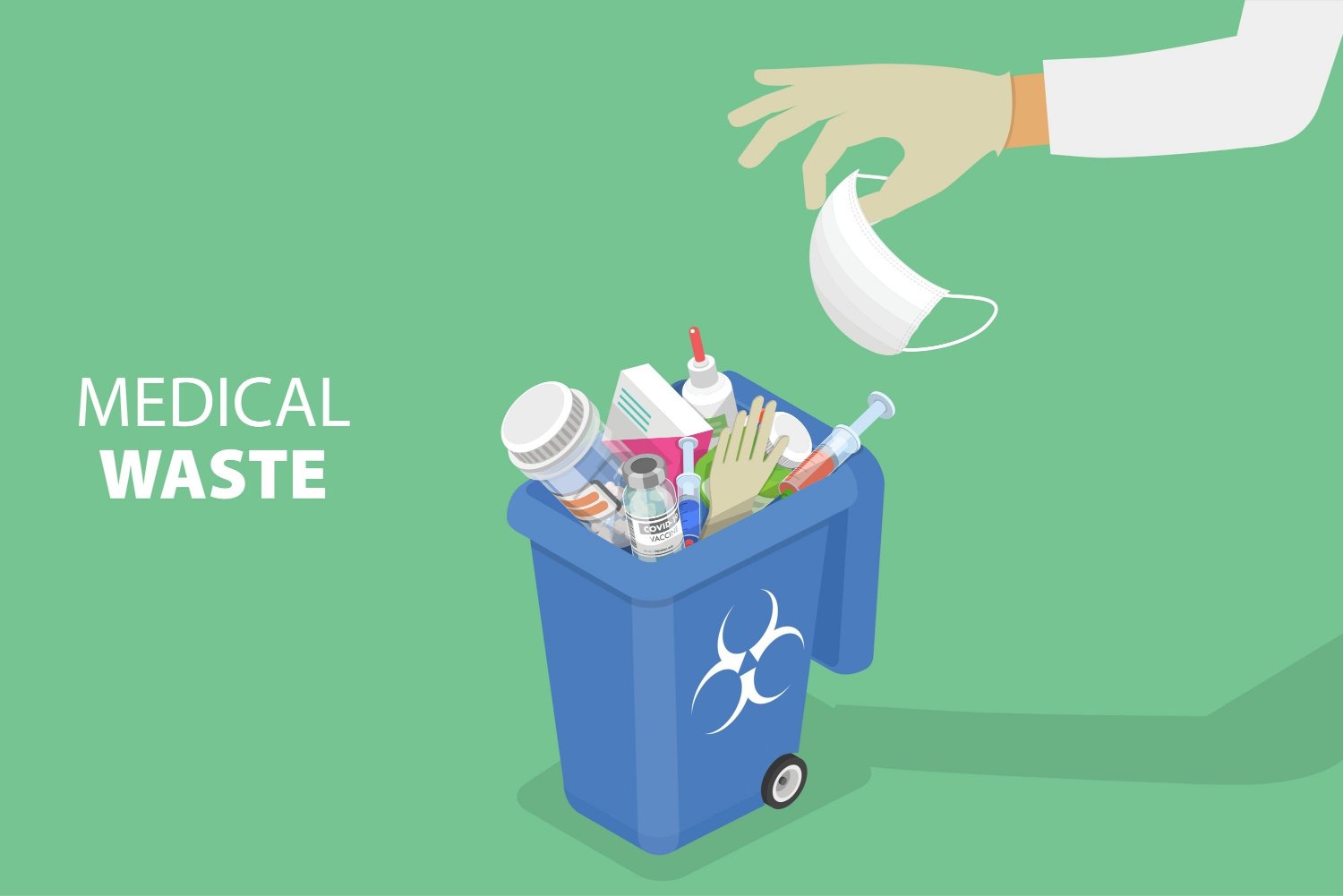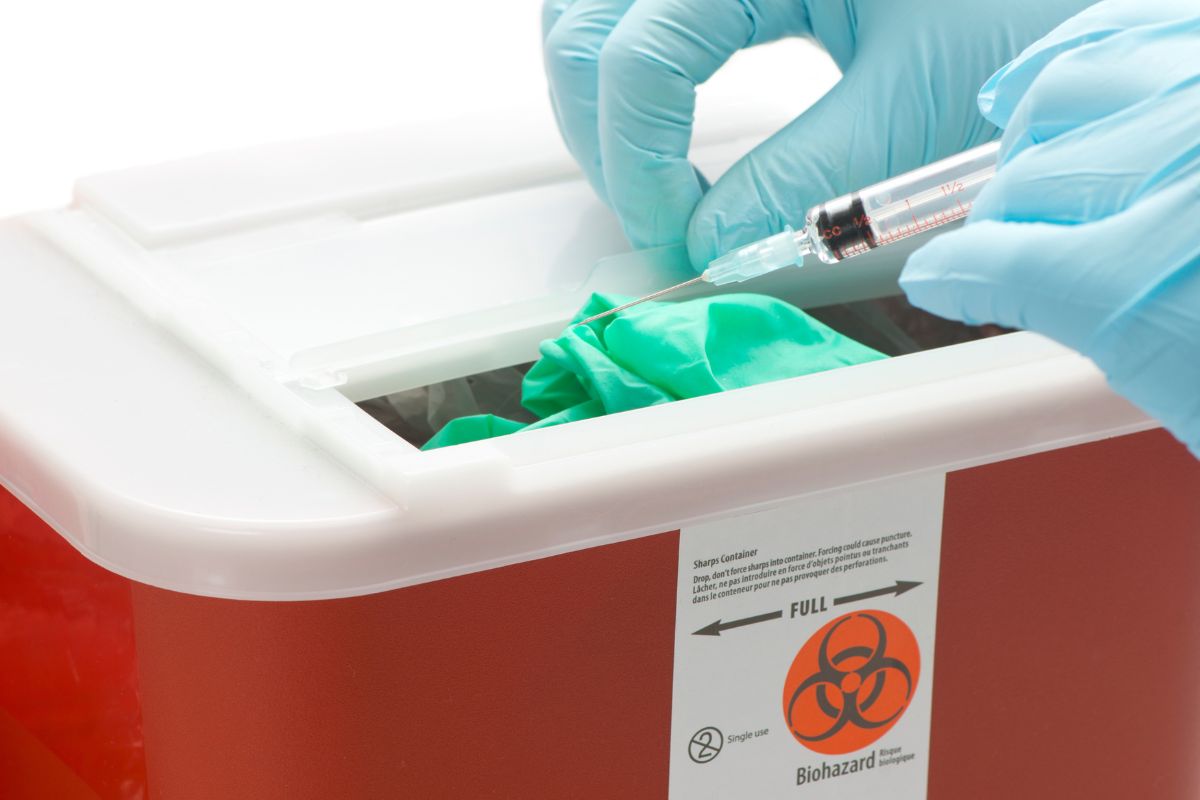Navigating Medical Waste Disposal: Crucial Providers for Medical Care Facilities
Healthcare facilities, whether big medical facilities or tiny centers, are entrusted with the responsibility of handling, dealing with, and disposing of a large selection of medical waste streams. Recognizing the vital services that support clinical waste disposal is not simply an issue of compliance but additionally an essential component in guarding public wellness and environmental wellness.
Regulatory Compliance Support
For health care facilities, making certain governing conformity support is important to maintain correct handling and disposal of clinical waste. Following policies stated by organizations such as the Epa (EPA) and the Occupational Safety And Security and Wellness Administration (OSHA) is vital to prevent ecological contamination, protect public wellness, and stay clear of potential lawful effects. Governing conformity support offers health care facilities with guidance on exactly how to effectively set apart, store, transportation, and throw away numerous kinds of medical waste in conformity with local, state, and federal regulations. This support includes aid in developing and applying comprehensive waste administration plans, performing regular team training sessions, and executing audits to make certain ongoing conformity. By partnering with governing conformity professionals, healthcare facilities can remain up-to-date on evolving regulations, reduce dangers connected with incorrect waste disposal, and eventually add to a more secure and extra sustainable atmosphere for all.
Waste Partition Guidance

Health care facilities need to offer clear standards and training to team on how to segregate waste efficiently. This consists of dividing general waste from dangerous products such as sharps, infectious waste, drugs, and chemical waste.
Collection and Transport Providers

Correct collection and transportation services are crucial elements of the medical garbage disposal process in medical care facilities. These solutions make certain that hazardous materials are taken care of safely and in conformity with laws to safeguard both the atmosphere and public wellness. Health care facilities count on specialized waste monitoring companies to provide effective collection and transport solutions tailored to their demands.
Clinical waste collection involves setting apart different kinds of waste at the factor of generation, making use of color-coded bags or containers to distinguish between basic, unsafe, pharmaceutical, and other waste streams. Once collected, the waste is carried in specialized lorries furnished to take care of harmful materials securely.
Treatment and Disposal Solutions
In the world of medical waste disposal for healthcare facilities, after the critical phase of collection and transportation solutions, the focus moves in the direction of implementing efficient treatment and disposal remedies. Therapy solutions commonly involve procedures such as autoclaving, which utilizes vapor under stress to disinfect the waste.
Disposal options encompass the final action in the medical waste management process. Recycling and resource healing are additionally obtaining grip as lasting disposal choices for particular types of clinical waste materials.
Efficient treatment and disposal remedies are paramount in making certain conformity with guidelines and guarding public health and wellness and the setting. Health care facilities should carefully evaluate and choose proper techniques that straighten with their waste management goals and sustainability efforts.
Staff Training and Education And Learning

To properly manage medical garbage disposal in health care facilities, thorough team training and education play an essential duty in guaranteeing adherence to regulative demands and maintaining a safe setting. Proper training equips personnel with the knowledge and abilities required to handle check my site different sorts of clinical waste, segregate them correctly, and package them firmly for disposal. By educating staff members on the dangers connected with incorrect handling of clinical waste, centers Home Page can reduce the possibility of mishaps, contamination, and governing violations.

Final Thought
To conclude, healthcare facilities rely upon important clinical garbage disposal solutions to make certain regulative conformity, appropriate waste partition, risk-free collection and transport, reliable treatment and disposal, in addition to team training and education and learning. These solutions play an essential function in maintaining the health and wellness and security of both medical care employees and the general public, highlighting the importance of appropriate management of clinical waste in medical care setups.
For healthcare facilities, making certain governing compliance assistance is crucial to maintain correct handling and disposal of medical waste. Waste partition entails classifying different types of medical waste to make certain appropriate handling, therapy, and disposal. This consists of dividing basic waste from unsafe materials such as sharps, transmittable waste, drugs, and chemical waste.Medical waste collection entails setting apart different types of waste at the point of generation, using color-coded bags or bins to identify in between basic, harmful, pop over to this web-site pharmaceutical, and various other waste streams.In the world of medical waste disposal for healthcare facilities, after the critical phase of collection and transportation services, the focus shifts in the direction of executing reliable therapy and disposal remedies.